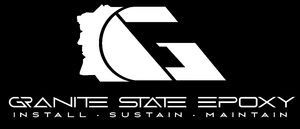Food-Grade Epoxy Flooring
In food production, cleanliness isn’t optional—it’s critical. Food-grade epoxy flooring provides a seamless, non-porous, and highly durable surface that meets strict health and safety standards. Whether you're operating a commercial kitchen, dairy plant, meat packing facility, or food packaging warehouse, the right flooring protects your product, your team, and your bottom line.
In a city like Manchester, where over 300 food service businesses operate under strict local health codes, having seamless, compliant flooring isn’t just smart—it’s essential.
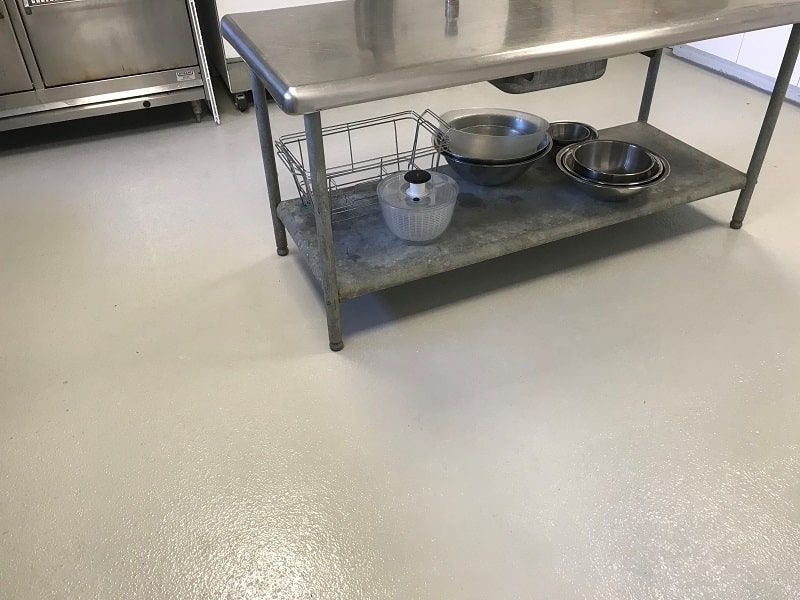
Durable, Sanitary, and Compliant Flooring for Food Processing Facilities
Why Choose Food-Grade Epoxy Flooring?
Built for Safety, Cleanliness, and Compliance
Food-grade epoxy flooring is specially formulated to withstand the harsh conditions found in food and beverage environments. These coatings are resistant to bacteria, chemicals, moisture, and extreme temperatures—while being easy to clean and maintain.
Benefits of food-safe epoxy flooring include
- Hygienic and seamless surface that prevents bacteria buildup
- Chemical resistance to withstand sanitizers, acids, and oils
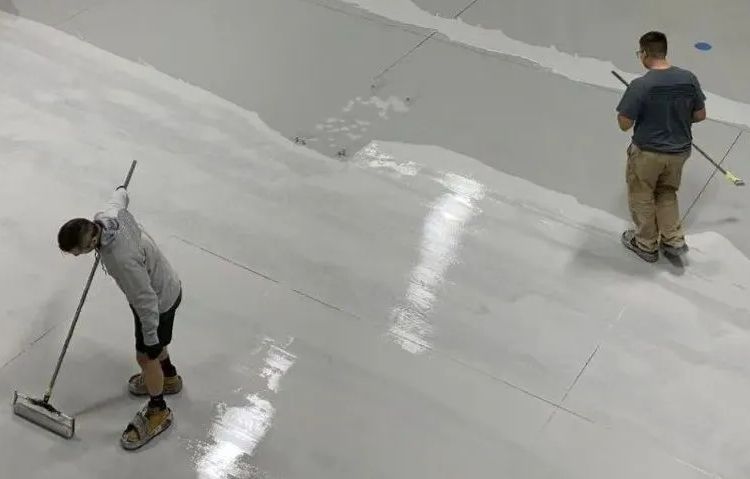
- Slip-resistant textures to minimize worker injuries
- Waterproof and vapor-resistant barrier
- Thermal shock tolerance for hot washdowns and freezer transitions
- Heavy-duty durability for forklifts, foot traffic, and impact
With more food startups launching out of shared commissary kitchens in Manchester, epoxy flooring is a smart, scalable option that supports fast-paced operations while maintaining health compliance.
Ideal Applications for Food-Grade Epoxy Floors
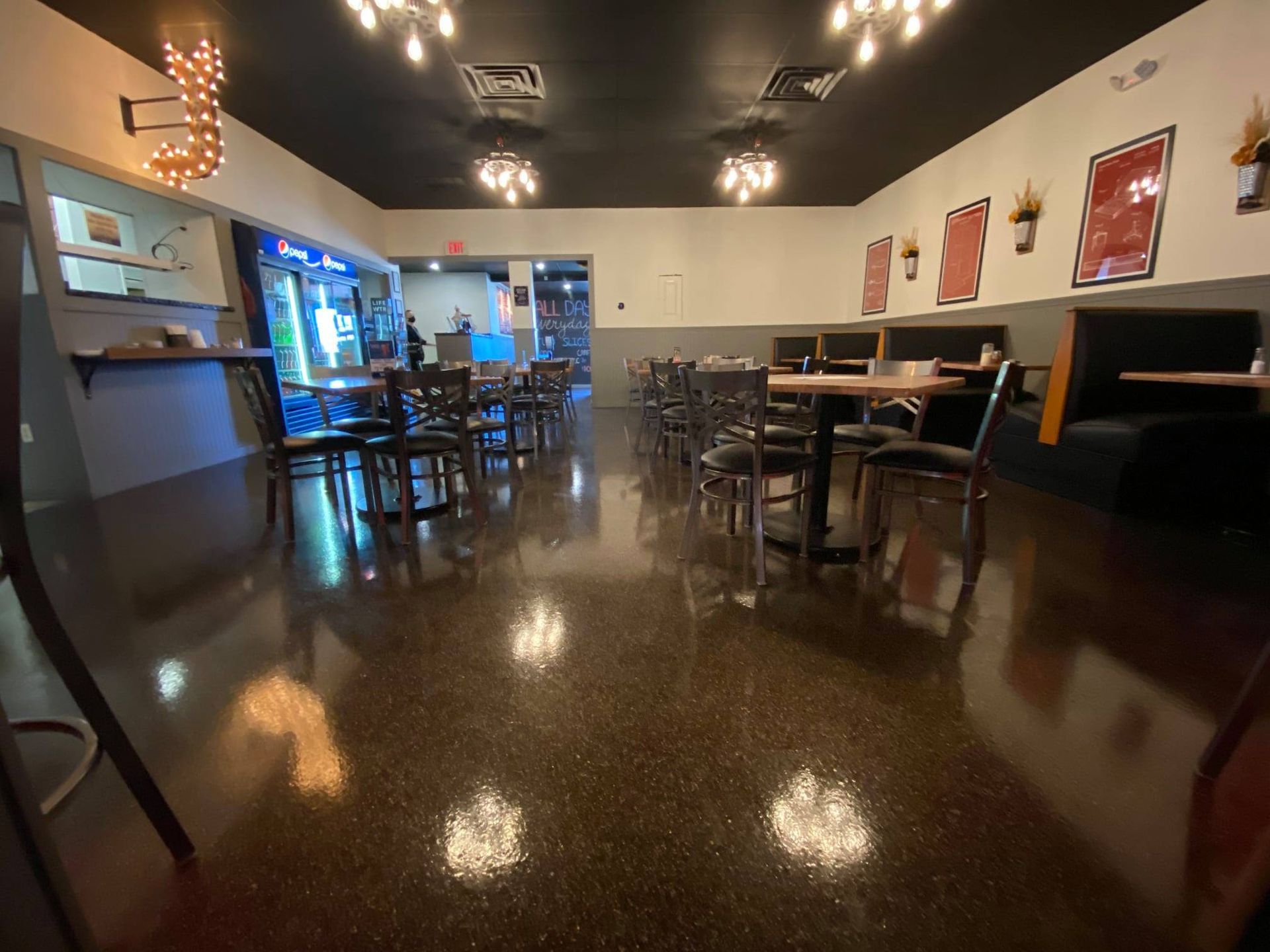
Suitable for a Wide Range of Food Environments
Whether you're baking bread or bottling beverages, epoxy flooring systems can be customized to meet the specific demands of your facility.
Industries and environments that benefit from food-grade epoxy include
- Commercial kitchens & commissaries
- Breweries and distilleries
- Meat and seafood processing plants
- Dairy processing and cheese production
- Bakeries and confectionery operations
- Beverage bottling facilities
- Food storage warehouses and cold rooms
- Packaging, canning, and bottling lines
- Agricultural food production
Each environment presents unique challenges. That’s why we tailor every floor installation to match your cleaning protocols, safety requirements, and operational workflows.
The Science Behind Food-Grade Epoxy Systems
Food-grade epoxy flooring isn’t just paint—it’s a multi-layered resin system engineered to meet USDA, FDA, and HACCP standards. When properly installed, these systems create a monolithic surface that blocks contaminants and resists degradation over time.
Surface Preparation
We start by mechanically grinding or shot blasting the concrete surface. This removes contaminants and roughens the floor, allowing the epoxy to bond properly. Without this step, coatings can fail early—so we make sure it’s done right. This step is especially important for cold-storage zones and logistics facilities tied to Manchester-Boston Regional Airport, where moisture control and floor integrity are non-negotiable.
Moisture Barrier Primer
A moisture barrier primer is applied to protect against vapor coming up from the concrete. This helps prevent bubbles, peeling, or delamination later. It’s a critical layer that ensures the epoxy sticks and stays solid under tough conditions.
High-Solid Epoxy Basecoat
This thick base layer gives the floor its strength and durability. It levels imperfections, reinforces the surface, and builds the foundation for everything above. Made for industrial use, it’s what helps the floor handle weight and impact.
Optional Broadcast Layer
We can add sand, quartz, or flake to the surface for added texture and safety. This layer boosts traction in wet or greasy environments, while also enhancing the look of your floor with decorative or functional finishes.
Topcoat
The final layer seals the system. It’s UV-resistant, easy to clean, and highly chemical-resistant. This protective coating locks everything in, giving the floor a polished finish that holds up to daily wear, spills, and cleaning routines.
Benefits of Seamless, Non-Porous Flooring in Food Environments
Stop Contamination at the Source
Traditional floors with grout lines, joints, or seams can harbor bacteria and mold. Food-grade epoxy eliminates these weak points.
How epoxy flooring enhances food safety
- No cracks or joints where pathogens can hide
- Easy to clean with standard sanitation procedures
- Resistant to acids, sugars, salts, and fats
- Does not absorb moisture or organic material
- Can withstand repeated washdowns and caustic cleaners
In high-risk environments, flooring is your first defense against microbial growth and cross-contamination.
Slip-Resistant Options for Wet and Greasy Zones
Protect Your Workforce and Meet OSHA Standards
Slip-and-fall accidents are one of the leading causes of workplace injuries in the food and beverage industry. Epoxy flooring systems can be customized with anti-slip aggregates to match your safety needs—without compromising cleanability.
Slip-resistant epoxy finishes are ideal for
- Dishwashing and prep areas
- Fry lines and production zones
- Loading docks and receiving bays
- Walk-in freezers and cold storage
- Washdown zones and sanitation areas
The texture is chosen based on your specific cleaning protocols and traffic levels to maintain the perfect balance between grip and hygiene.
Resistant to Heat, Cold, and Thermal Shock
Built to Withstand Temperature Extremes
From steaming ovens to blast freezers, food processing involves dramatic temperature changes that can destroy ordinary flooring. Epoxy flooring is designed to endure it all.
Thermal shock-resistant epoxy flooring handles
- Hot water washdowns
- Steam sanitation
- Freezer exposure
- Sudden temperature swings
This makes it a trusted solution in environments where temperature abuse is a daily reality. Manchester’s growing food manufacturing sector regularly deals with rapid shifts between steaming sanitation and freezing storage—making thermal shock resistance a must-have.
Fast Installation and Minimal Downtime
Keep Your Operation Running
We understand that time is money. That’s why we offer fast-curing epoxy systems that can be installed with minimal disruption to your workflow.
Our installation process includes
- Site inspection and substrate evaluation
- Moisture testing and floor prep
- Customized system design based on traffic, cleaning, and safety needs
- Installation by certified epoxy specialists
- Final curing and post-install inspection
Thanks to our fast
epoxy installation services, many facilities can return to full use within 24 to 48 hours.
Clean, Professional Appearance That Lasts
Functional Flooring Doesn’t Have to Be Ugly
Food-safe doesn’t mean boring. Epoxy flooring is available in a wide range of colors, finishes, and textures to fit your facility’s layout and design.
Options include
- Solid color coatings for a clean, uniform look
- Decorative quartz or flake blends for added slip resistance
- Safety line striping and color-coded zones
- Glossy, satin, or matte finishes
Not only does this improve safety and wayfinding, it boosts morale and reflects your commitment to a clean, professional environment.
| Feature | Epoxy Flooring | Quarry Tile | Sealed Concrete | Vinyl Sheet |
|---|---|---|---|---|
| Seamless Surface | ✅ Yes | ❌ No | ❌ No | ✅ Yes |
| Antimicrobial Properties | ✅ Yes | ❌ No | ❌ No | ⚠️ Some |
| Chemical Resistance | ✅ Excellent | ⚠️ Moderate | ⚠️ Low | ⚠️ Moderate |
| Slip Resistance | ✅ Customizable | ⚠️ Varies | ⚠️ Low | ⚠️ Varies |
| Maintenance Requirements | ✅ Low | ❌ High (grout) | ⚠️ Moderate | ⚠️ Moderate |
| Life Span | ✅ 10–20+ years | ⚠️ 5–10 years | ⚠️ 5–10 years | ⚠️ 5–7 years |
Customized Epoxy Flooring Solutions for Your Facility
One Size Doesn’t Fit All—We Build for Your Needs
Every food facility has unique traffic, workflow, and cleaning demands. That’s why we don’t do one-size-fits-all installations.
We offer
- On-site evaluations
- Custom formulation recommendations
- Traffic mapping and flow analysis
- System designs based on compliance regulations
- Ongoing maintenance guidance
Our team works closely with facility managers, plant engineers, and safety coordinators to ensure every project meets your exact specs. With Hillsborough County inspectors focusing more on flooring compliance, our systems help Manchester facilities stay ahead of evolving regulations and pass inspections with confidence.
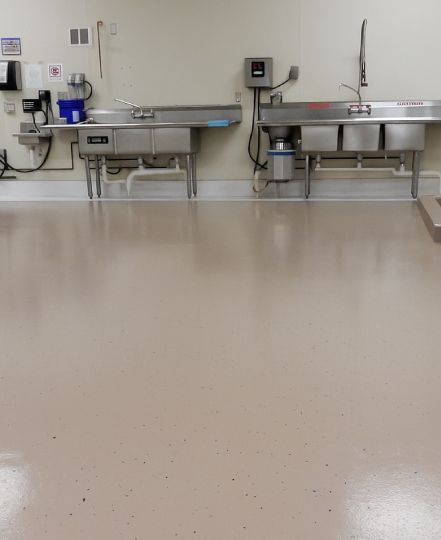
Frequently Asked Questions
How long does food-grade epoxy flooring last?
A properly installed and well-maintained food-grade epoxy floor can last anywhere from 10 to 20 years, sometimes even longer. Its durability depends on daily traffic, cleaning practices, and environmental exposure. Facilities that clean regularly and avoid harsh impacts or moisture damage tend to get the most life out of their floors. With the right upkeep, you’ll have a floor that performs reliably for years.
Is epoxy flooring FDA or USDA approved?
Epoxy flooring itself isn’t “approved” like a product, but when installed correctly using food-safe materials, it meets all the standards set by the FDA, USDA, and HACCP. That means it creates a seamless, non-absorbent surface that’s easy to clean and resistant to bacteria—exactly what regulatory agencies require for food-safe environments. It's trusted by countless food processors, kitchens, and commercial facilities across the country.
Can epoxy flooring handle heavy equipment?
Yes, food-grade epoxy flooring is made to take a beating. Whether you're running forklifts, pallet jacks, or heavy carts, the industrial-grade coatings we use are engineered to handle the pressure without cracking, denting, or wearing down. It’s not just tough—it’s resilient. With the right thickness and prep, epoxy can hold up to constant, heavy-duty traffic without giving in.
Will epoxy flooring peel or crack?
When installed the right way—with proper surface prep and moisture mitigation—epoxy flooring bonds tightly to the concrete below. That strong bond prevents peeling, cracking, or bubbling over time. Problems only tend to happen with poor installation or ignored prep work. With our process, you’ll get a smooth, durable finish that holds strong even under constant use and harsh conditions.
Is epoxy flooring safe for wet environments?
Absolutely. In food facilities where spills, steam, and washdowns are part of the routine, safety matters. That’s why we offer slip-resistant options designed for wet or greasy areas. Textured additives and specialized coatings help prevent slips while still being easy to clean. It’s a smart choice for keeping both your team and your operations running smoothly—especially where moisture is unavoidable.
Get a Food-Safe Floor That Performs Under Pressure
You don’t cut corners on safety, quality, or cleanliness—and neither do we. Our food-grade epoxy flooring systems are built to stand up to your toughest challenges while helping you meet compliance, safety, and performance goals.
Ready for a safer, cleaner, longer-lasting floor?
📞
Call now to
schedule a free consultation
📝 Or
request a custom quote online
Optimize Your Facility with Certified Epoxy Flooring Experts
We bring deep experience in food and beverage facility flooring, precise installation techniques, and industry-specific knowledge to every project. From small kitchens to multi-line production plants, we deliver flooring that meets the mark—on every level.
- USDA/FDA/HACCP Compliant
- Anti-slip, anti-microbial, chemical resistant
- Installed fast by skilled professionals
- Backed by performance guarantees
Let’s raise the standard of your food facility—starting from the ground up. Reach out today.

